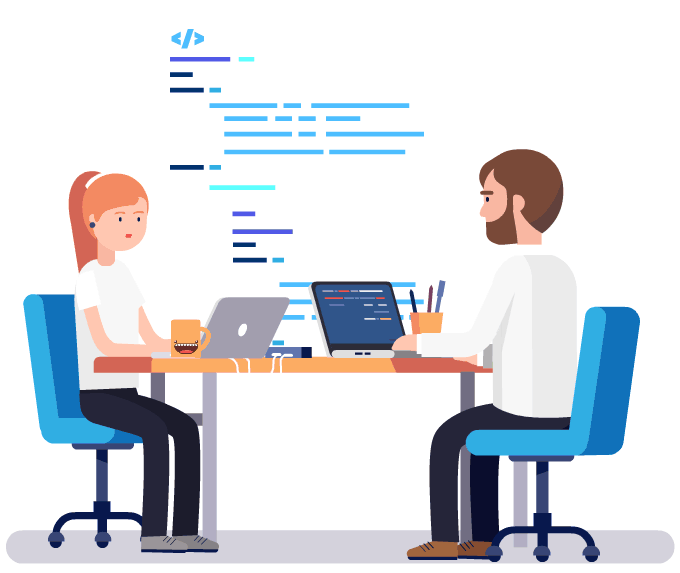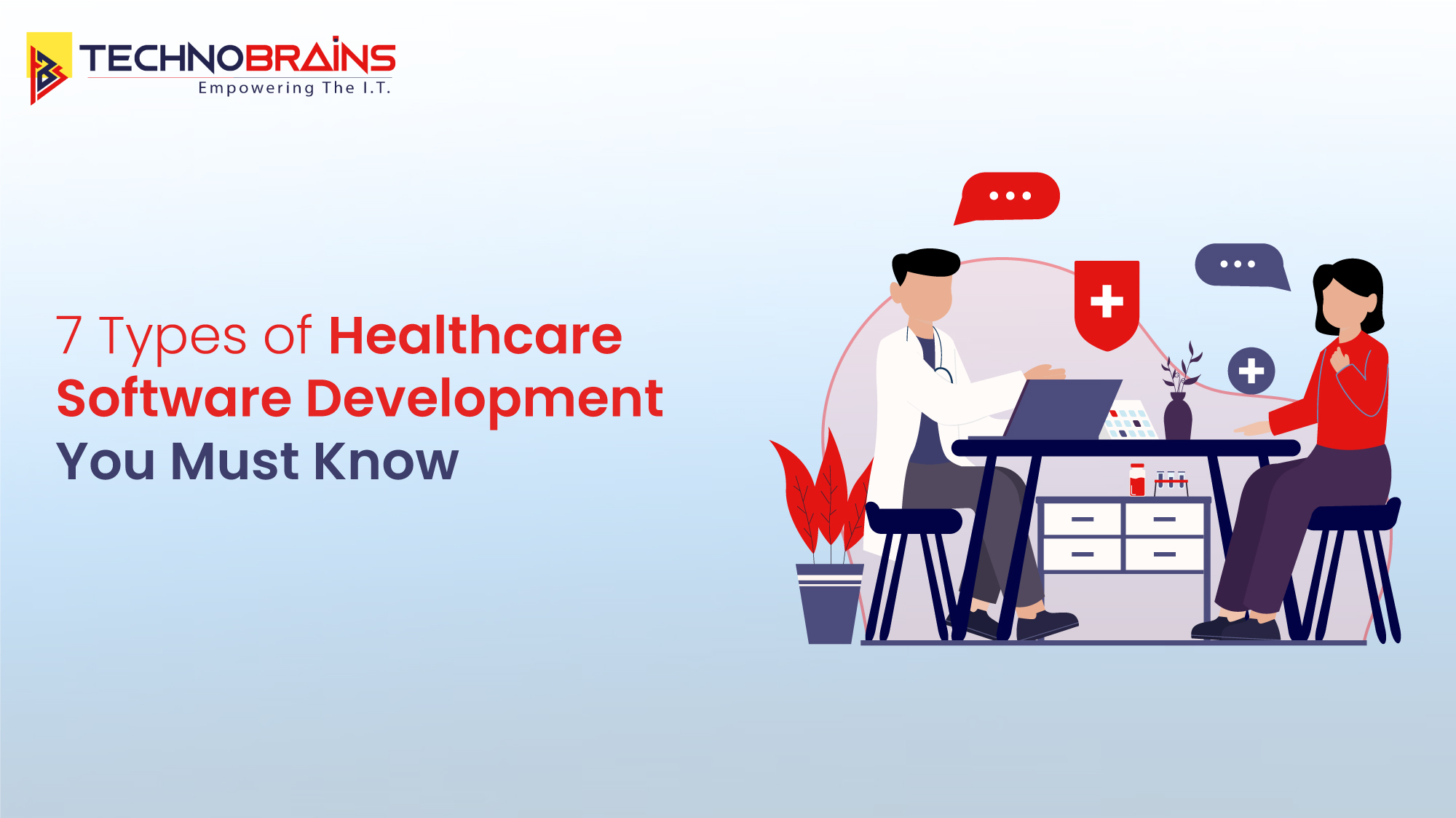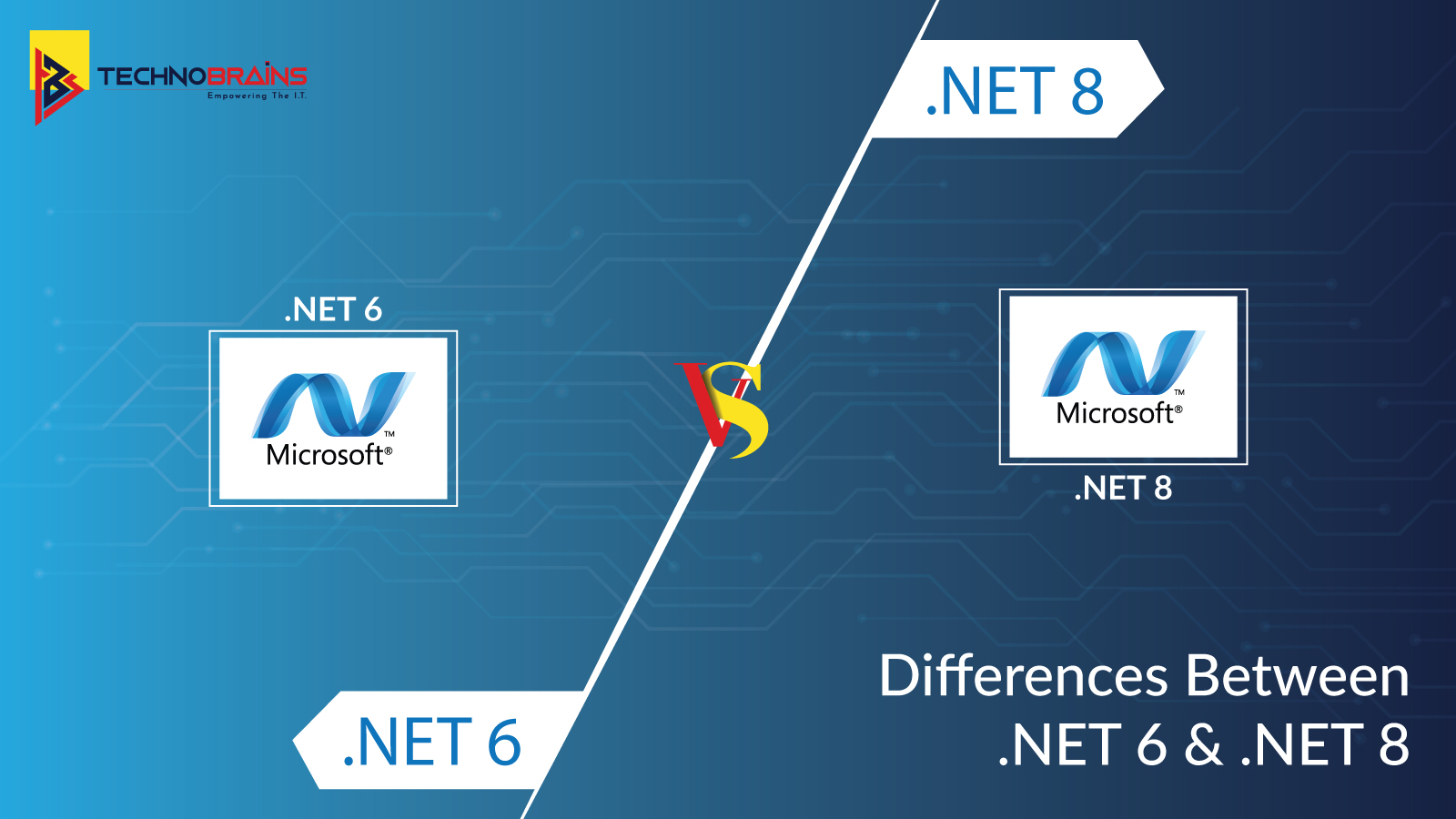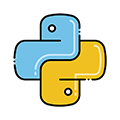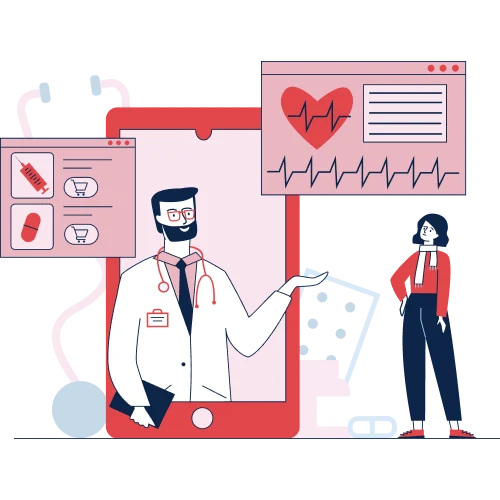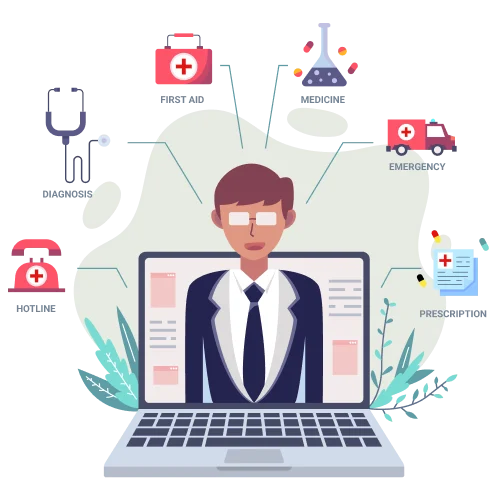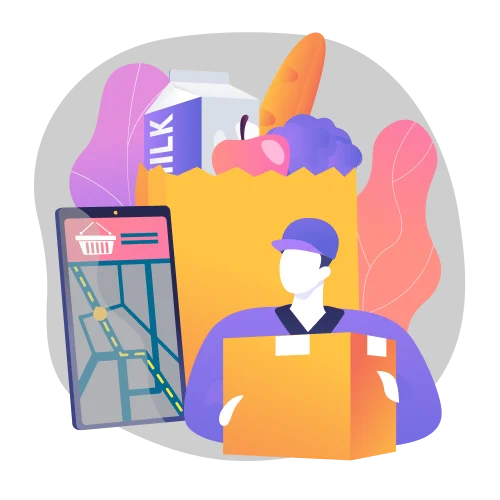Get 40 Hours Free Developer Trial
Test Our Developers for 40 Hours at No Cost - Start Your Free Trial →
The recent changes have had a significant impact on various businesses. Clinics and medical staff are using specialized software to improve their work, making patients’ lives easier, to enhance the effectiveness and affordability of healthcare management systems.
Healthcare software is becoming more popular for several reasons: wearable technology, smartphones, and other mobile devices; more efficient diagnostic tools; increased use of digital technologies for healthcare services; and the ability to gather and analyze data on patient well-being.
Therefore, the adoption of HealthTech software is crucial for medical organizations, staff, and businesses. It enables them to improve the competitiveness and accessibility of healthcare services. In this blog, we will delve into the different types of healthcare software.
Top 7 Types of Healthcare Software You Must Know
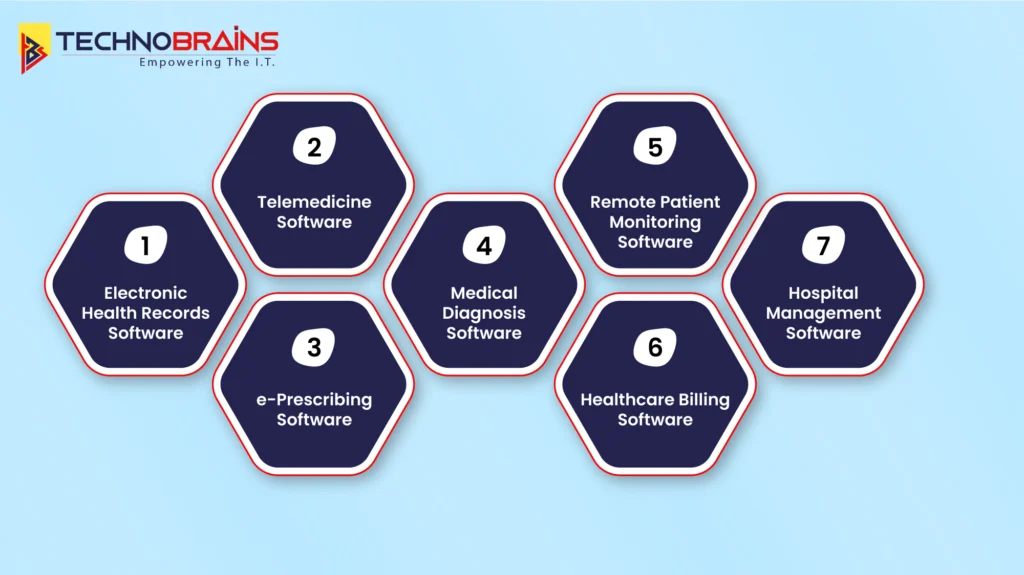
There are several healthcare software type, let’s dive into the top 7!
1. Electronic Health Records Software
EHR software enables healthcare facilities to record data more efficiently and securely, serving as a modern replacement for handwritten records. It is valuable that more healthcare professionals and experts can exchange digital records. It reduces paperwork and facilitates data sharing among different medical facilities. Modern digital security technologies and government-enforced laws regarding electronic medical records, such as HIPAA compliance, ensure this.
Electronic Health Records can be valuable in emergencies. Data security and privacy are significantly enhanced by electronic health records. This type of sophisticated software helps guard against data manipulation and allows for the use of backup and encryption methods for additional security assurance EHRs handle digital data for purposes like analytics or research. Patients provide their consent for this process, involving depersonalizing and analyzing data in bulk.
2. Telemedicine Software
Telemedicine involves using computer networks to facilitate communication between patients and doctors. It was traditionally done through email and phone calls, but nowadays, digital technologies enable patients and doctors to have online consultations via web or mobile apps, using text, audio, or video chats.
Some telemedicine apps combine elements of social networks and marketplaces. These apps have different functionalities and access permissions but are linked to a common data platform. This allows doctors to have a clear view of their schedules, and hospital management staff to keep track of the workload for each doctor and department. Meanwhile, patients have access only to relevant parts of the schedule and receive notifications to remind them of their appointments or any other important information.
Read Also, An Ultimate Guide for building Healthcare Software in 2024
3. e-Prescribing Software
E-prescribing software allows doctors not only to create new prescriptions but also to track prescription history and to renew or cancel prescriptions when necessary. In some countries, the software enables direct communication with a pharmacy of choice for added convenience. Overall, e-prescription software increases the safety and efficiency of both patients and doctors, allowing doctors to check for any potential conflicts with existing medications.
4. Medical Diagnosis Software
There are two forms of medical diagnosis software: applications for patients and a more advanced type, which is diagnostic software for healthcare experts. Applications for patients are usually in the form of easy surveys or chatbots that act as symptom checkers. It provides basic information to users and helps them understand their symptoms without relying solely on Google searches.
AI diagnostic software can assist medical professionals in data collection, analysis, and determining non-specific illness symptoms, thereby facilitating faster diagnosis and research. Healthcare organizations can share all anonymized data for collaborative research and analysis.
5. Remote Patient Monitoring Software
Remote Patient Monitoring Software alerts a doctor at the time of abnormality. It became more popular during the pandemic as traditional health management practices were disrupted. Remote Patient Monitoring improves in-home healthcare services for individuals with chronic conditions, recovering from surgery, and the elderly.
6. Healthcare Billing Software
Medical billing software automates the invoicing and payment processes, making them fast and easy using templates and electronic payment options. This reduces the time and energy required for these tasks.. Additionally, it saves money by reducing the number of employees needed to carry out these processes. The main advantages of billing software include automating reporting, eliminating bureaucracy, and reducing paperwork.
Among custom healthcare software options, Epic stands out due to its broad functionality. It speeds up payments and frees up staff time by offering online payments, self-service and automatic payment plans, estimated prepayments, financial consulting and assistance, and others related to billing. It reduces misunderstandings and prevents any essential details from being missed.
7. Hospital Management Software
Hospital management software is specifically created to assist hospital administrators in various tasks such as monitoring pharmacy supplies, managing patient registration, and keeping track of utility bills. By using this software, medical and administrative staff can perform tasks more efficiently and with less effort, ultimately leading to improved hospital performance. Medical equipment management software aids in preventing costly equipment downtime. Additionally, it provides real-time information about the location and usage of specific equipment.
Wrapping Up
With the increasing demand for healthcare software, developers are constantly creating and improving various types of healthcare software development. Hospital management, medical staff, and patients highly appreciate this software for their advantages. Every medical service provider, including small clinics, now requires at least a CRM system and EHR software to offer a competitive level of service to their patients.
As a leading software development company, TechnoBrains specializes in providing customized IT solutions for healthcare. We have built significant expertise in this field and take a personalized approach to every case.
If you need any type of above software solution, fill this form and specify your requirements.
